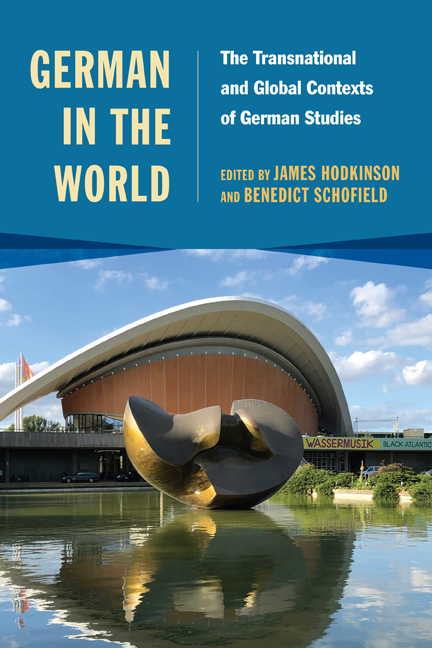6 - Postcolonial Studies in International German Studies: Postcolonial Concerns in Contemporary German Literature
Published online by Cambridge University Press: 06 October 2020
Summary
FORTY YEARS AFTER the publication of Edward W. Said's study Orientalism (1978), widely seen as a catalyst for the rise of international postcolonial studies over the course of its first twenty years, postcolonial theory and postcolonial research are probably as well established in international German studies as they will ever be. There is a regular stream of publications in history, literary and cultural studies, and also in the political and social sciences that advances the “postcolonial project” (to take Bhabha's term) of critically “rereading and rewriting” wider German involvement in European colonialism and imperialism, as well as the specific memory and critique of German, Austrian, and Swiss colonial history overseas and domestically, including its ambivalent legacies today that range from multifaceted cross-cultural exchange to the backlash of residual racism and resurgent nationalism. There are dedicated research centers, websites, and academic book series, and postcolonial research has its place in many of the leading international journals in German studies, while research on German, Austrian, and Swiss (post) colonial history and culture are beginning to feature in courses and journals dedicated to international, mostly Anglophone, postcolonial studies that tend to focus on British and French colonialism. The substantial edited volume Postkoloniale Germanistik: Bestandsaufnahme, theoretische Perspektiven, Lektüren (Postcolonial German Studies: Review, Critical Perspectives, Readings, 2014), and the comprehensive mapping of the field in the German-language Handbuch Postkolonialismus und Literatur (Handbook of Postcolonialism and Literature, 2017), which contextualizes German postcolonial studies in the wider field of comparative literature, other arts and humanities subjects, and comparative postcolonial studies, mark the establishment of postcolonial studies in German academia some twenty years after German studies began to embrace this new paradigm in the later 1990s.
At the same time, the “postkoloniale Blick” (postcolonial gaze), as Paul Michael Lützeler calls it, pioneered by authors such as Uwe Timm, Hans Christoph Buch, and Hubert Fichte since the 1970s, has proliferated since the 1990s. Critical engagement with the legacies of European colonialism, the critical memory of Germany's own imperial history, and the critique of Eurocentrism and the rejection of racism and othering have since become normalized in contemporary German literature.
- Type
- Chapter
- Information
- German in the WorldThe Transnational and Global Contexts of German Studies, pp. 108 - 131Publisher: Boydell & BrewerPrint publication year: 2020

